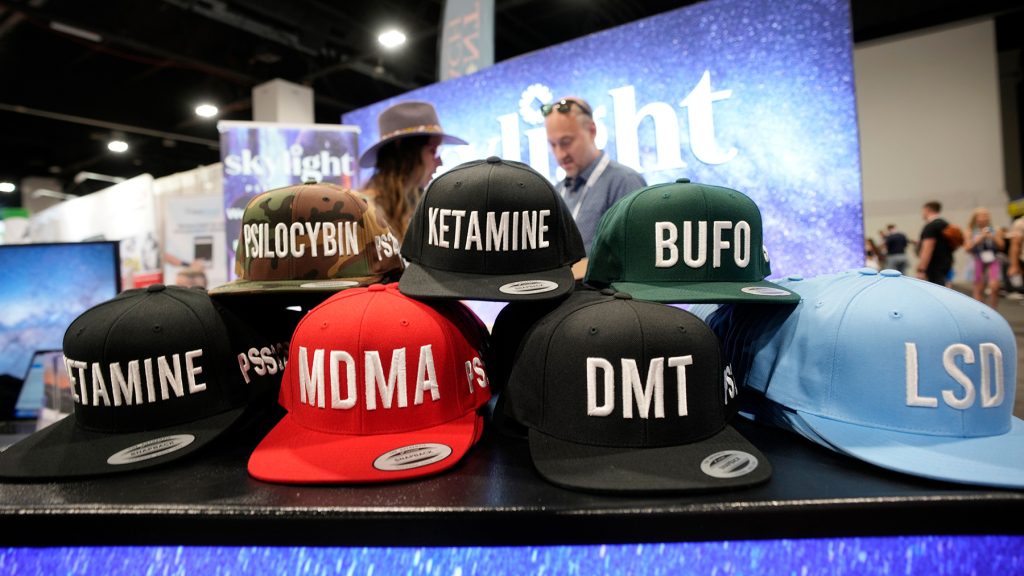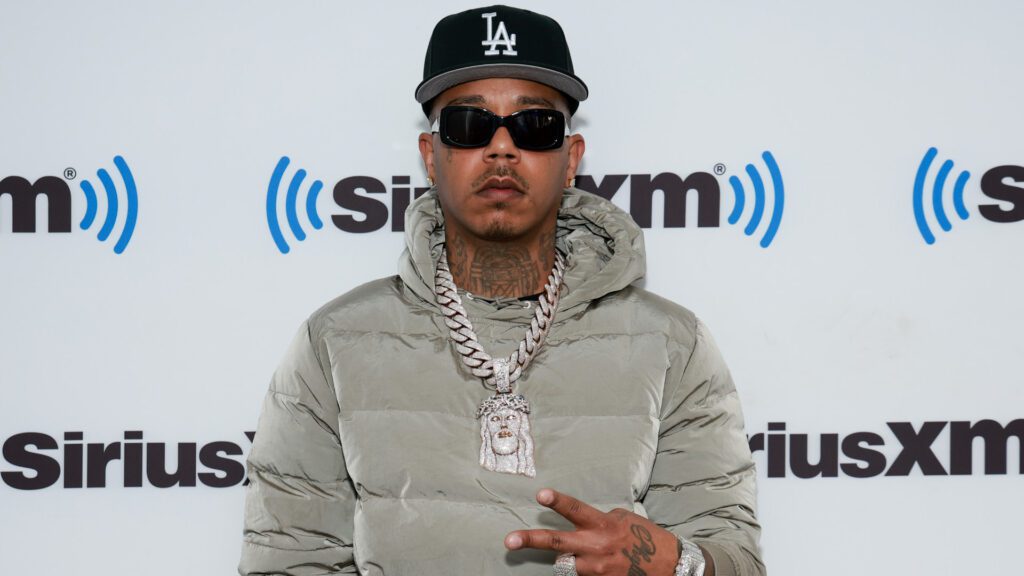
The Battle for the Future of Psychedelics
“Welcome to the psychedelic twenties.”
This is how Rick Doblin, founder and president of the Multidisciplinary Association for Psychedelic Studies (MAPS), greeted a packed crowd on the opening morning of Psychedelic Science 2023 in Denver last week, dressed in a loose white suit befitting a guru. Billed as the largest-ever gathering of its kind — more than 12,000 attendees, according to Doblin — the conference brought together scientists, therapists, activists, entrepreneurs, and creatives bound together by what more than one speaker referred to as a mycelial network, or the threads that connect a collective fungal organism. Networks that exist, for example, among psilocybin mushrooms, one of several psychedelics decriminalized by Colorado voters last year.
Doblin, MAPS, and many others have made the study of (and access to) such drugs a life’s mission, seeing in them a potential health revolution. At PS23, you could hear a parade of experts talk about using psilocybin to treat trauma, MDMA or ketamine to break through depression, and ibogaine — a potent psychoactive substance derived from the roots of a shrub native to Central Africa — to help patients struggling with addiction. You could even listen to NFL quarterback Aaron Rodgers attribute his back-to-back MVP seasons to hallucinatory experiences with ayahuasca.
He was hardly the only celebrity on hand. Jaden Smith turned up to discuss how psychedelics have brought him into greater connection with nature, while rock icon Melissa Etheridge talked about losing her son Beckett to an opioid overdose in 2020, when he was just 21. Etheridge had become an advocate for cannabis years ago, having used it to mitigate the side effects of chemo when battling cancer, and also embarked on journeys of introspection with ayahuasca. In Beckett’s story, she saw the potential for a different application of plant medicine. Speaking at the conference, she recalled his talent as a snowboarder and the accident that changed the course of his life.
“He took that one jump and he broke his ankle. And then of course, it was Vicodin, and then it was heroin,” Etheridge told her audience. “Because not only did he have the pain in his ankle, but the pain of losing his dream.” Turning from grief to action, she founded the Etheridge Foundation, which partners with organizations investigating addiction treatments “outside the current pharmaceutical norms.” She tells Rolling Stone that she’s looking forward to the release of a promising study on ibogaine carried out with support from the nonprofit. On Thursday night, Etheridge played a stirring solo acoustic set at Bluebird Theater, with proceeds going to benefit the foundation’s work.
But, in truth, money was everywhere, and you could smell the venture capital circling what some believe will be a lucrative successor to the legal cannabis industry. That in itself has many clinicians, practitioners and leaders of indigenous communities — long left out of the industrialization of their own traditional medicines — worried. In various conversations with Rolling Stone, PS23 participants confide that the state-by-state rollout of recreational cannabis in the U.S. had been a “mess” or “disaster,” marred by conflicting regulations, corruption, and the exclusion of the exact communities targeted in the War on Drugs. And psychedelics have already had their own growing pains: Dr. Brent and Andrea Turnipseed, a couple whose Roots Behavioral Health in Austin has for years offered ketamine-assisted psychotherapy, note how the recent boom in clinics administering the drug is already going bust. “It’s just really hard to scale,” says Dr. Turnipseed, who says not enough healthcare providers are yet trained in this area. Which is to say nothing of the challenge of convincing insurance companies to pay for it.
Business versus tradition, research versus experience, and the political versus the personal: these are the tensions simmering in the push for psychedelic renewal, creating schisms but also unexpected alliances. After Doblin’s welcoming remarks on Wednesday morning, former Texas Gov. Rick Perry took the stage, immediately joking about the crowd’s reaction to seeing him there, calling himself the “dark, knuckle-dragging, right-wing” foil to the hippie-ish head of MAPS. But Perry had felt called to the psychedelic cause, he explained, because of his relationship with Marcus Luttrell, a former U.S. Navy SEAL who endured a harrowing mission in Afghanistan that later became the nonfiction account Lone Survivor. Perry worked for years with Luttrell to find practical care for the traumatic after-effects of combat and was ultimately impressed with the results Luttrell achieved with the likes of ibogaine and 5-MeO-DMT, another plant-derived psychedelic substance. He’s been pushing for more research on psychedelics ever since. “Seeing 5,000-plus people in this auditorium working together to change people’s minds, literally, figuratively, and forever, is what this conference is really about,” Perry said.
The issue of veteran care was often held out as a promising way to change minds — while bridging partisan differences. At PS23, Marcus and Amber Capone, the co-founders of Veterans Exploring Treatment Solutions, who Perry mentioned in his speech, attracted admirers as nothing short of a celebrity couple. (He’s another former Navy Seal, while she left behind the real estate business to become executive director of the organization.) Before chatting with Rolling Stone, the pair had just unveiled exciting findings from Dr. Nolan Williams at Stanford University’s Brain Stimulation Lab that demonstrated reduced PTSD, anxiety, and suicidality in veterans treated with ibogaine.
The “Deep Space” immersive art hall.
David Zalubowski/AP
“Many of us want to make sure people remember that these medicines have been used for thousands of years,” Marcus Capone says. “And they were kind of pulled off track in the sixties for recreational use,” which led to prohibition laws that derailed research. Meanwhile, Amber adds, there’s the double-edged sword of gaining more recognition for the treatment without an equivalent expansion of resources. “The more awareness we raise around this, the more fervor is created within the veteran community,” she says. “Hence, the more applications that we have to say no to.”
These were two more common themes of PS23: on the one hand, attendees were reminded of the importance of coming out of the psychedelic closet to share what good these drugs have done for them. On the other, there was a pronounced wariness of the decadent 1950s-1970s counterculture that resulted in a nationwide crackdown on legitimate psychedelic research, and a consensus interest in moving past that first wave toward a more serious, mature, data-driven breakthrough.
Of course, the Burning Man element was still visible (along with representatives from the organization behind the annual event): one darkened convention hall was reserved for psychedelic art installations, and you were bound to encounter someone rollerblading in a dragon costume or freestyle rapping in a mushroom hat. Beyond the convention hall, you could also enjoy a trippy benefit concert headlined by the Flaming Lips, featuring surrealist comedians Reggie Watts and Eric Andre. The latter took the stage and asked the crowd, “Who wants mushrooms?!” before flinging handfuls of shiitake at the cheering masses. Those who wanted to grow actually hallucinogenic fungi could buy “grow bags” from companies like Spore Light. At their table, director Josue Sanchez assured Rolling Stone that “anyone” can easily harvest their shrooms, and that it “might even be easier” than keeping a common houseplant alive.

Merch to match your psychedelic drug of choice.
David Zalubowski/AP
But for all the set dressing and the “fun” side of psychedelics, the true bread and butter of PS23 were exhibitors and presenters whose individual journeys had led them to pursue work on expanded access and study. There was, for instance, Aaron Orsini, who self-published the 2019 book Autism on Acid and co-founded the Autistic Psychedelic Community to raise awareness of what LSD and similar drugs can do for neurodivergent people. “We’re trying to heal from cultural stories that are wounding us, and we’re trying to feel comfortable existing,” he says, “honored with just having differences in our presentation towards other people.”
KGK Science, a Canadian contract research organization led by Najla Guthrie and repped by Olympic gold medal bobsledder Alex Kopacz (who went on to study engineering and physics), emphasizes the need for caution and regulation to avoid another cannabis-style disaster. Psychotherapy, says Guthrie, “is the most effective way to administer these medicines,” with integration — the chance to process one’s experience with a medical professional after the fact — an important, often overlooked component. “So having them as a consumer product,” as cannabis now is, “just doesn’t work,” she says, speculating that such an approach could also “stifle innovation.” Kopacz, drawn to psychedelics because of a family history of addiction and for use treating the lasting impact of a concussion, identifies the unique opportunity for researchers to communicate without the sense of ego that usually plagues academia. “I think in this space, when it comes to the overall health benefit to people, you probably find a lot more collaboration because we’re doing it for the greater good,” he says.
On Friday, Tracey Tee, creator of Moms on Mushrooms and a proponent of microdosing, gave a flurry of interviews outside the convention center — barefoot — following a rally and photo-op for her group, which is also planning a march on Washington. “We need to wake up, we need to be present,” she tells Rolling Stone. “And so it’s not Mommy’s Little Helper. We don’t need a helper. We need grounding, and we need connection. And that’s what the medicine does.” Another mother — actress and royal descendant Catherine Oxenberg — describes creating the Oxenberg Foundation to provide retreats with ketamine-assisted therapy for women who have survived sexual violence. She had successfully treated her own chronic pain with the drug, and, after finally getting her daughter India out of the human trafficking cult NXIVM, was frustrated with the lack of treatment resources that could address India’s specific needs. “Women suffering from sexual trauma is the largest population of people suffering from PTSD, larger than veterans and first responders,” Oxenberg says. “And I didn’t know that. There’s very little help being offered to that population.”
At times it sounded like the important promise of psychedelic healing — while a key argument in legalization efforts — could threaten to drown out the earthly, artistic and even mystical connection to these substances that have kept them a part of the human story for so many generations. East Forest, a musician who has worked with the late guru and psychologist Ram Dass, expressed disappointment that a closing night concert he was scheduled to perform in was canceled at the last minute. “I think it was an oversight. And I think often, like music, for instance, or the arts and the creative aspect of this, is overlooked right now,” he says. “It’s sort of this privatization of commerce and science.” Luckily, he was able to play an event earlier in the week. “You know, an embodied experience, instead of just a bunch of talking and listening.”
The embodied experience is certainly of interest to the Plant Tribe, a multiracial nonprofit offering “Life is a Ceremony” psychedelic retreats in Jamaica’s Montego Bay. The group was established by Steve DeAngelo, a longtime cannabis advocate, and a co-founder of the Rastafari Indigenous Village where the ceremonies take place, who goes simply by Firstman. Guests are fully integrated in local culture by learning songs, recipes and artisanal methods; it’s “the first Rastafari community to incorporate ayahuasca and psilocybin into their own spiritual practice,” with a focus on sharing traditional rhythms and stories.
“We see plant as a source of company,” says Firstman — a way to bring people together. “Whether it be social development or spiritual development or economical development. And once we can have that as the front focus, then what we’re saying to other people who come — it’s not a moment and then you go away without the plant, we’re showing you that you can live a way of life with a plant.” He and DeAngelo, who has studied plant-based spiritual traditions worldwide, see the global north approaching indigenous and Black societies with the goal of “extraction,” seizing on culturally important psychedelics without understanding their profound role within those regions. They seek to counter that exploitative tendency. “What happened in the cannabis industry is that there was a displacement, where the people who were the real pioneers, who were the real subject-matter experts, who were more mission- and purpose-oriented than money-oriented, were largely squeezed out,” DeAngelo says.

NFL quarterback Aaron Rodgers talked with author Aubrey Marcus about the benefits of ayahuasca.
Matthew Stockman/Getty Images
Among the more mission-oriented of this psychedelic era is Charles Lazarus, known as a guitarist for reggae band Rootz Underground and now co-founder of Jamaica-based company Rose Hill, which supplies the psilocybin mushrooms for the Life is a Ceremony retreats. Lazarus, who learned to grow mushrooms from “trial and error” and watching YouTube videos, also ships product to clinical labs in Canada, which is gradually opening up to medical usage. “No, you’re not gonna get rich exporting mushrooms for research,” he says, describing this as “more about sharing information in part of something cool.” He’d rather keep his business small, responsible, and functional — and clear with the government of Jamaica, which has no laws about psilocybin — than take over the entire space. He’s also somewhat amused by the investors who would try to mimic his grassroots success with a top-down approach. “They’re always raising a bunch of money to then go and create this plan that we’re already doing. We’re already doing that shit!”
Yes, no matter how you’re trying to enter the psychedelics game (and there are dozens of ways to do it), you’re likely going to find that someone else has beaten you to it, or is coming at it from a competing, entirely opposite angle. Highly managed therapy is at odds with recreational consumerism. Anti-colonial retreats are, in some respect, an answer to the limits of western science. And the precise value of these drugs depends almost entirely on the individual you ask, though each tries to build common understanding across the field. If nothing else, while everyone has their skepticism or reservations, people are inclined to believe that we really are at the “tipping point” that Doblin identified in his greeting to conference attendees.
Yet, as almost everyone said on stage or in interviews, there is so much more we have to learn, and it all begins with talking to one another. Progress relies on an established reality, the proven facts that will convince healthcare providers, politicians and eventually the public at large that these substances can improve our quality of life.
I was amused, in an exhibition hall, by an early, somewhat harebrained prototype for a comprehensive reference tool, something made to merge the facts we do have. It was an AI chatbot from the Entheology Project called “MushGPT,” which had been trained on 400 scientific articles on psychedelics, making it a convenient guide for anyone curious about these drugs. I asked it, “What’s a good dose of MDMA for a first-timer,” and it told me, “The recommended dose of MDMA for a first-timer is between 75-125mg,” stressing that effects vary based on body size and other factors. And, although the bot’s creator, Rev Hooman, acknowledges that it can produce inaccuracies (just like regular ChatGPT) I was impressed to see its response included firm warnings about taking MDMA in a “safe and controlled environment” and adhering to other harm reduction guidelines.
What’s clear from even this gimmick — as from the rest of the sprawling conference, despite the diversity of views included — is that a deep devotion to psychedelics is also a commitment to cooperation, to exchanging knowledge while working through obstacles with care and intention. Contrary to a mantra of Silicon Valley, which has been associated with psychedelic shifts past and present, few at PS23 expressed an interest in moving fast and breaking stuff. Most talked instead about maximizing enlightenment.
Whoever had used MushGPT before me evidently had this idea at top of mind, because they’d typed in: “What is the meaning of the universe.” In its reply, the bot admitted that there are infinite possibilities, but mentioned one that struck me as altogether relevant to the conversations I’d heard and taken part in over the week: “Some people believe that the universe has no inherent meaning or purpose,” it said, “and that we must create our own meaning through our experiences and interactions with the world around us.” Though it may be the output of a software program, it’s a fine path for any of us — especially the psychedelic movement — to follow.



